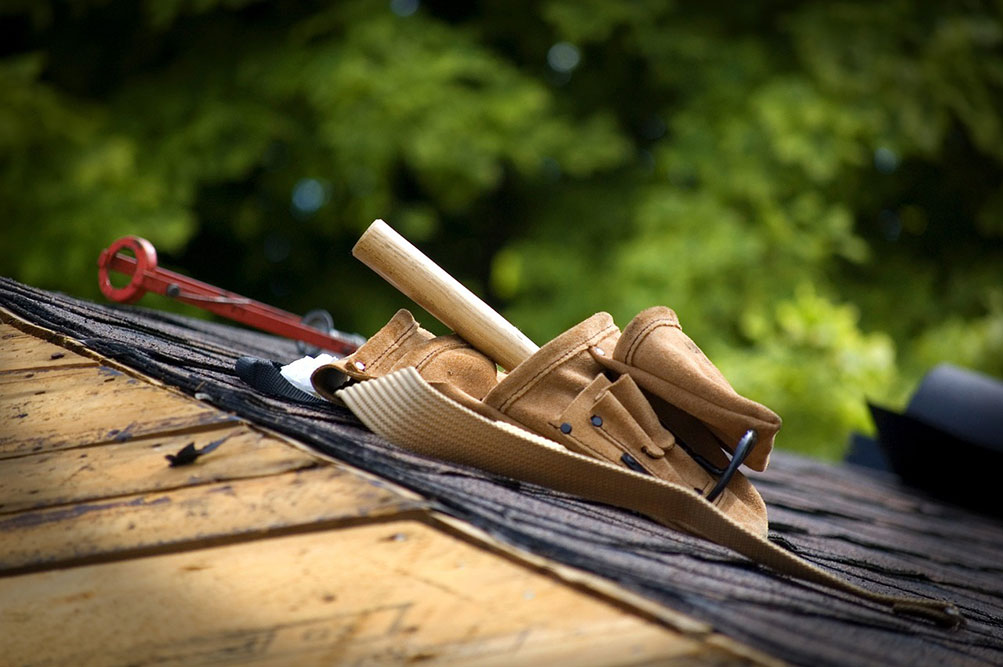Making improvements to your property is an excellent way to increase its value or prepare it for sale, and the modern popularity of do-it-yourself projects is hard to deny. In this day and age, it is much easier for the average homeowners to gain the knowledge they need to complete renovations. For some, the allure of DIYs lies in the sense of accomplishment at learning a skill. For others, it is purely a cost-driven solution. Doing your own home renovations is a great way to save money. However, inexperienced builders may not be aware of the maze of safety concerns they must navigate. If you love the idea of completing a DIY project, make sure to follow these tips!
Do the research
Searching for inspiration is usually the start of a DIY project. This can come from a favorite blog, social media accounts, or even a TV show. Once you establish a clear vision for the project, the next phase involves diving into the practical aspects of it. One of the drawbacks of working on a DIY project is that you’ll likely be unfamiliar with the process involved to reach a finished product. This means that you’ll have to invest time upfront simply learning about the skills and tools needed. It’s important to find an experienced voice, whether online or among your friends, who can guide you and offer practical advice that meets your level of understanding. This can help make you aware of potential safety concerns that may occur throughout the project.
Use only the right equipment
Certain DIY projects are more intensive than others. While some may only require a drill and screws, others may involve tools like stud finders, digital levels or wet saws, to name a few. Purchasing every tool you may need for a project might not be feasible, both from a storage and a financial standpoint. It doesn’t make sense to purchase a tool if you’ll likely only use it once. The solution to this is to simply borrow a tool from a friend or neighbor, or rent one through a local home improvement store. Home Depot actually has a pretty decent rental program available throughout the country.
Using the right tools is essential for project safety. Although it may be tempting to simply “make it work” with whatever tools at hand, this could result in injury or complete project failure. For example, when tiling a large area, it’s often best to use a wet saw. Water actually runs over the blade to keep it cool and reduce the amount of dust thrown into the air. This, of course, prevents the saw from overheating and reduces dust inhalation. Not to mention that the tool will hold up better to the test of time. In addition to identifying the proper tools to use, it may be necessary to also use protective equipment. Think masks, eye goggles, and thick work gloves.
Know when to call a professional
Despite wanting to be entirely self-sufficient on a project, the reality is that there are some things that should just not be attempted on your own. This is especially true when it comes to dealing with toxins that may be encountered during a renovation project. Older homes may still contain toxic materials that were installed before their dangers were recognized. So, before you go knocking down walls, make sure to get an inspection. Two of the most common toxins found in many buildings are asbestos and lead, both of which can be difficult to identify. Additionally, these materials can have a severe impact on health. Asbestos exposure can result in chronic lung conditions and devastating cancers like mesothelioma. Sadly, the average life expectancy for mesothelioma patients is less than two years.
Lead exposure can result in neurological deficiencies in children and a host of issues for adults. With both of these toxins, there is no known safe level of exposure. Because of these severe health risks, it’s important to rely on professionals who have the expertise to dispose of any harmful materials safely.
Closing thoughts
Do it yourself projects can be highly rewarding both in terms of personal achievement and financial savings. However, it’s important not to jump into a project without proper planning and putting safety measures in place. Sometimes this means not completing every aspect of the project on your own. If executed safely, DIY renovations can save you a ton of money and bring a feeling of personal fulfillment.
Julia E. Miller
Related posts
1 Comment
Leave a Reply Cancel reply
This site uses Akismet to reduce spam. Learn how your comment data is processed.





[…] projects around the house. Homeowners may not be aware of the presence of asbestos and the necessary safety precautions they should take when completing […]